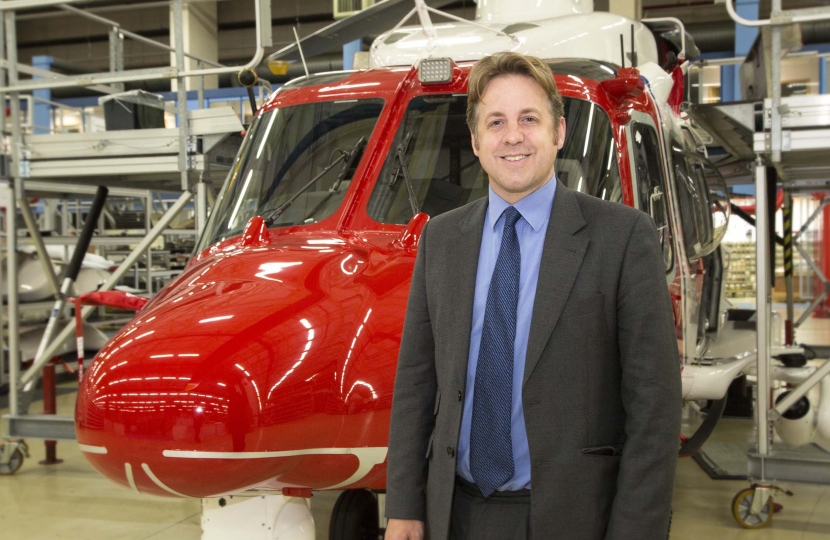
Marcus Fysh, the Conservative MP for Yeovil, yesterday continued his campaign to keep the helicopter industry high on the government’s agenda.
Mr Fysh wants to see closer collaboration between Leonardo and Boeing to help preserve the long-term future of helicopter manufacturing in Yeovil.
He posed a question to Harriett Baldwin, the Minister for Defence Procurement, in the House of Commons. Click here to watch it in full.
He said: “What is she doing to ensure that Boeing works with Leonardo in Yeovil on the UK's Apache helicopters, and to encourage Boeing further to build capability in the strategic aerospace cluster we have in Yeovil?”
The Minister replied: “I was very impressed when I visited my honourable friend's constituency earlier this month and of course Leonardo Helicopters will support our existing Apache Mk1 helicopters until they’re retired from service.
“And I’m delighted that last week Boeing announced it will make the UK its European base for training, maintenance, repair and overhaul across its defence platforms.
“I’m sure they will want to discuss this with Leonardo, which is well placed to secure sub-contract work on the next generation of Apaches.”
Mr Fysh will also be applying for a Backbench Business debate on the role of the aerospace industry within the government’s Industrial Strategy.
Meanwhile, Mr Fysh was encouraged by comments from Norman Bone, the new managing director and chairman of UK operations for Leonardo, in The Telegraph newspaper on Monday.
Mr Bone said: “We have signed a strategic partnering agreement with the UK and that very clearly established what we are looking at towards the future.
“Unmanned helicopters are going to be a major requirement both for the UK and abroad and we also know there is probably another medium lift aircraft required.
“We think we will still be designing and developing rotary wing aircraft in Yeovil for some time to come.”
Mr Bone added: “Having the British military use our products is a badge of honour and one that helps them sell for export.
“Because we design them in the UK, we retain the intellectual property and that is important for the economy in the jobs it generates and skills it maintains.”
